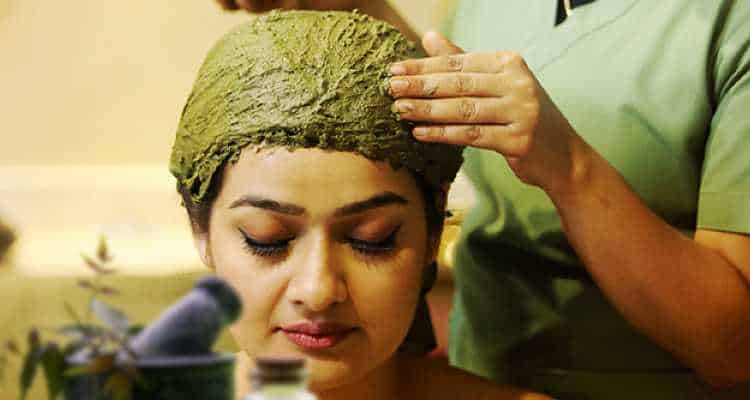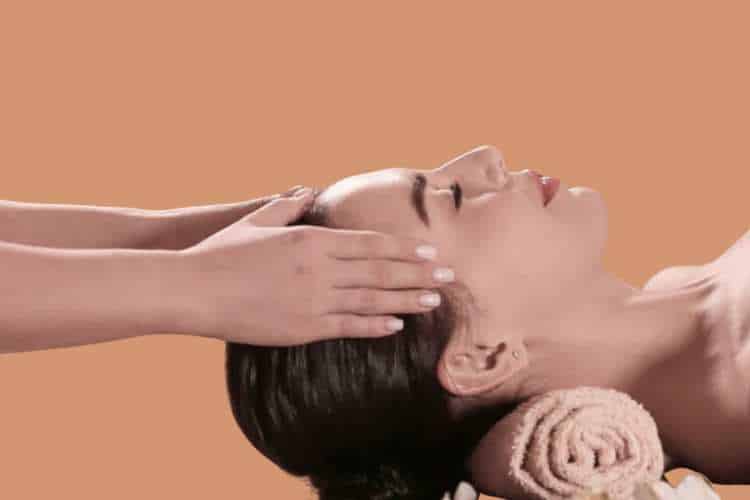Ayurvedic Treatment for Stress and Anxiety in Coimbatore
Best Ayurvedic Treatment for Stress and Anxiety in Coimbatore
Ayurvedic management for stress and anxiety at Avanika Ayurveda includes herbal therapies (adaptogenic and calming herbs), panchakarma therapies for detoxification and rejuvenation. At Avanika Ayurveda, the treatment seeks not only to manage symptoms but to address the root cause of stress by including meditation and breathing practices (Pranayama), specific dietary guidelines, lifestyle corrections for better mental resilience, use of medicated oils for head and body massages, and rasayana (rejuvenation) therapies.

Pure Herbal

Evidence Based

Guranteed Results
Book An Ayurvedic Treatment for Stress and Anxiety in Coimbatore.
If you are looking for an Ayurvedic Treatment for Stress and anxiety in Coimbatre Book an appointment and get free consultation.
Aim of Avanika's Ayurvedic Treatment Package for Stress and Anxiety
Ayurveda views stress as an imbalance between the body and mind, where both can affect each other. Stress, termed ‘Klama’ in Ayurveda, is a part of psychosomatic conditions.
The Ayurvedic aim is to manage stress by:
- Controlling the mind and sense organs.
- Detaching from stress-inducing environments.
- Restoring balance in the body and mind through lifestyle modifications, therapies, and mindful practices.

Benefits of Avanika's Ayurvedic Treatment Package for Stress and Anxiety
- Holistic Approach: Addresses mind, body, and spirit together
- Customised Therapies: Treatments tailored to individual needs
- Natural Solutions: Use of herbs and natural therapies
- Detoxification: May help cleanse physical and emotional toxins
- Lifestyle Correction: Encourages sustainable mental well-being
- Focus on Prevention: Emphasises practices that support long-term mental health

What is Stress and Anxiety?
Stress
The body has a natural effort to adjust to external or internal stimuli that tend to produce strain or disequilibrium of the body and mind. Such physiological and psychological efforts of the body are termed stress. Stress is experienced by everyone at many points in day-to-day life, not only for humans but also for every living being in this world.
Stress can be classified into two types:
- Eustress: This is positive stress created after engaging in activities like playing, working, and other pursuits.
- Distress: This is prolonged, recurrent stress which can cause damage to the body and mind.
Acute distress is sudden in origin like accidents, trauma, assault, illness, loss of close ones, leading to symptoms like grief, anxiety, depression, insomnia, headache, restlessness, and lack of concentration. Chronic distress, considered a lifestyle disease, stems from continuous exposure to negative factors like work pressure, family problems, financial stress, social issues, and health anxieties. Stress manifests in the body through anxiety, depression, emotional outbursts, insomnia, hypertension, respiratory discomfort, and susceptibility to addictions like alcohol and tobacco.
Anxiety
Anxiety is an emotion characterized by feelings of worry, nervousness, or unease, typically about an imminent event or something with an uncertain outcome.
It can range from mild to severe and can be a normal reaction to stressful situations.
However, when anxiety becomes excessive, persistent, and interferes with daily life, it may indicate an anxiety disorder.
There are several types of anxiety disorders such as Generalized Anxiety Disorder (GAD), where people experience prolonged bouts of worry, anxiousness, and irrational fear that interferes with their day-to-day activities, social life, personal health, and work for more than 6 months. Phobias are intense and irrational fears of very specific things or situations, leading to an unreasonable response to fear or anxiety towards conditions that may otherwise not be considered harmful.
Examples include phobia of heights (Acrophobia), phobia of insects (Entomophobia), phobia of seeing blood (Hemophobia), phobia of needles (Trypanophobia), phobia of darkness (Nyctophobia), phobia of water (Aquaphobia), phobia of confined spaces (Claustrophobia), and phobia of social interactions (Social Phobia).
Panic disorder involves sudden, recurrent bouts of extreme fear and anxiousness, often accompanied by excessive sweating, a pounding and fast heartbeat, trembling, and shortness of breath. Post-Traumatic Stress Disorder (PTSD) develops after experiencing a shocking, scary, or dangerous event, with intrusive thoughts about the incident in the form of flashbacks, bad dreams, and frightening thoughts triggering anxiety.
Bulimia nervosa is a serious, life-threatening eating disorder where individuals secretly binge with a loss of control over eating, followed by excessive concern about weight gain, triggering anxiety attacks. Obsessive-Compulsive Disorder (OCD) is a common, chronic, and long-lasting disorder where people have recurring, unwanted thoughts, ideas, or sensations (obsessions) that drive them to perform repetitive actions (compulsions).
What are the symptoms of Stress and Anxiety ?
- Constantly feeling restless, nervous or tense, inability to concentrate.
- The fear of losing control.
- Having frightening thoughts and mental images.
- Trouble falling asleep.
- Feeling weak or tired all the time.
- Physical symptoms such as excessive sweating, hyperventilation or raid breathing, feeling faint or dizzy & increased muscle tension.
- Extreme, irrational fear of specific things or situations.
- A tendency to avoid being in situations that cause anxiety.
What are the causes of Stress and Anxiety ?
Our brain produces certain chemicals which are known as neurotransmitters, which help us to deal with anxiety. The neurotransmitters such as norepinephrine, serotonin, dopamine, and gamma-aminobutyric acid are related to our mood and emotions. Any imbalance of these neurotransmitters can lead to symptoms of anxiety and other anxiety-related disorders.
The causes of anxiety disorder are not very clear. Some people experience severe anxiety in certain situations, while others take those similar conditions with ease. More focused studies are required to fully understand the reason. However, it is thought to be due to a complex interaction of genetics, environmental factors, and lifestyle choices.
People who suffer from chronic health conditions, such as cancer, diabetes, heart illness, chronic pain, thyroid issues, may also have anxiety. It may also manifest as a withdrawal symptom of alcohol intoxication, drug abuse, or a side effect of certain prescription medications
Risk factors
Although anxiety can happen to anyone at any given point in their life, anxiety disorders are found to be associated more with certain factors. These factors can be considered as a trigger for developing an anxiety disorder:
- Relation to a close relative in the family with an anxiety disorder.
- A chronic or serious health condition.
- Abused as a child.
- Unexpected trauma, such as the untimely death of a loved one or partner.
- Alcohol and drug abuse.
- Suffer from other mental health conditions, like depression, bipolar disorder, schizophrenia, etc.
Ayurvedic Perspective
‘Mana Shareeram Parasparam Anuthapayathi’ (body and mind are interconnected) is the Ayurvedic principle guiding stress management.
Complete lifelong rescue from stress may not be possible, but integrated approaches help individuals manage stress effectively.
Ayurvedic treatment for Stress and Anxiety in Coimbatore
Ayurvedic stress management at Avanika Ayurveda focuses on holistic and customised care. After a series of history taking and personalised prakriti analysis and diagnosis, the physician tailors a treatment plan that may include:
- Satwavajaya Chikitsa: Ayurvedic psychotherapy involving counselling, mental support, emotional care, and rehabilitation aimed at strengthening mental resilience.
- Panchakarma Therapies: Detoxification procedures like Abhyangam (oil massage), Shirodhara (oil pouring on forehead), Takradhara/Shirodhara (buttermilk pouring therapy), and Nasya (nasal therapy) that help soothe the nervous system.
- Herbal Remedies: Use of Ayurvedic herbs that support emotional wellness, promote relaxation, and manage bodily discomforts. Herbs like Ashwagandha, Brahmi, Jatamansi, Shankhpushpi, Mandukaparni may help support mental clarity and calmness.
- Mindfulness Practices: Techniques like Pranayama (breathing exercises) and meditation to calm the mind and promote mental clarity.
- Yoga Therapy: Yoga postures and breathing practices to relax the body, improve flexibility, and balance emotional states.
Lifestyle Recommendations for Stress and Anxiety
- Wake up early, preferably during Brahma Muhurta (early morning before sunrise)
- Practice Dinacharya (daily routine) including oil massage, yoga, and meditation.
- Engage in Ratricharya (night routine) ensuring timely, restful sleep.
- Regularly practise Pranayama and meditation to strengthen mental resilience.
- Meditating regularly can help focus your mind and channel positive energy.
- Listening to motivational speeches helps increase your self-confidence and boosts positivity.
- Watching videos that encourage positivity.
- Reading books on topics like understanding anxiety.
- Taking a healthy, balanced diet and cutting down on processed and sugary foods.
- Exercises are mood enhancers. Regular light exercises help prevent negative thoughts and feelings
- Pursue hobbies, art, music, travel, and nature walks to refresh the mind.
- Reduce screen time, limit consumption of negative news, and build healthy social interactions.
- Ensure adequate sleep and relaxation time
- Engage in mindful activities like yoga and meditation
- Avoid overstimulation from gadgets and excessive work stress
- Incorporate calming hobbies like painting, music, or gardening
- Stay socially connected and seek support when needed
Diet During Ayurvedic Treatment for Stress and Anxiety
A healthy lifestyle and diet are integral to Ayurvedic stress management:
- Consume Sattvic (pure) foods such as fresh fruits, vegetables, whole grains, milk, and ghee.
- Avoid excessive spicy, oily, and processed foods which aggravate the doshas and increase mental restlessness.
- Prefer warm, light, nourishing meals at regular intervals to maintain digestive balance (agni).
- Include warm, nourishing foods to calm Vata
- Fresh fruits, vegetables, whole grains, and healthy fats like ghee and nuts are encouraged
- Herbal teas like chamomile, brahmi, or tulsi may be supportive
- Avoid caffeine, processed foods, and excess sugar
- Hydrate adequately with warm water
- Spices like turmeric, cinnamon, and cardamom may support digestion and mood
How to Prevent Stress and Anxiety in Natural Way?
- Reduce consumption of caffeinated beverages like cola and coffee as these are known to worsen the symptoms.
- Learn and practice relaxation techniques and meditation.
- Consume a healthy, balanced diet and avoid processed, sugary, and fried foods.
- Quit smoking and reduce the consumption of alcohol
- Stay active; light-intensity exercises daily help improve mood and alleviate feelings of anxiety.
- Establish a sleep schedule for sound sleep.
- Keep a journal to log in all your thoughts. Expressing thoughts and feelings helps deal with them.
- Join a support group.
- During a panic attack, focus on breathing techniques, breathe slowly and with counts, as it will help you relax and shift focus from the source of panic.
What are you waiting for...
Book an Appointment
Hours & Contact
28A Bharathi Park 7th Cross, Saibaba Colony, Coimbatore
641043
+9142229 69555
+9189039 69555
info@avanikaayurvedic.com
Open All Days 7:00 AM -7:00 PM
